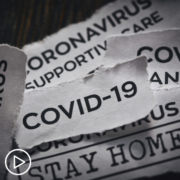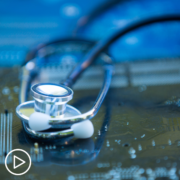How Can MPN Patients Access Telemedicine?
How Can MPN Patients Access Telemedicine? from Patient Empowerment Network on Vimeo.
How are MPN patients able to access telemedicine? Watch as experts Dr. Jeanne Palmer and Dr. Joseph Sirintrapun discuss access aspects of telemedicine, benefits of telemedicine, and the potential for changes after the COVID-19 public health emergency ends.
See More from MPN TelemEDucation
Related Resources:

|

|

|
Transcript:
Lisa Hatfield:
We’re going to have a real-time look at telemedicine. I like to start with the current landscape and the ever-changing yet ongoing role of telemedicine, so starting with Dr. Palmer, How does telemedicine work, and how does an MPN patient ask for, or access telemedicine? How do you do that at your center?
Dr. Palmer:
So telemedicine has been a real…one of the blessings that’s come out of this whole COVID pandemic because it put fast forward on the development of it and certainly has opened a lot of doors. I think one of the beneficial things of telemedicine is in a disease like MPNs, these are very rare diseases and there are not a lot of specialists in the country. So depending on where you live, there may or may not be somebody who specializes in this disease focus. So by having telemedicine, you can have access to a provider who has a higher level of specialty in that specific disease. I think this is really important for any rare disease, just because of the difficulty in finding specialists. Many of them are in urban areas, and so if you live in a rural area or somewhere outside of that specific zone, it can be very difficult to come and see a specialist. Additionally, it can be very costly.
If you look at the cost of the airfare and the lodging and everything else, I think of people coming to Scottsdale can pay an enormous amount of money just to come for two nights and to be able to see me. So the fact that we can do this via telemedicine, they can get the information, receive the education about the disease and help for maybe their local provider and managing it can make a huge difference in the quality of care.
Lisa Hatfield:
Great. Well, thank you. So from a practical perspective, and if you have a newly diagnosed MPN patient and they wanted to get specialized care or talk to an expert, would they just call…would they just look up online and find a phone number and try to call your clinic or how would they access maybe as an expert opinion from you, via telemedicine?
Dr. Palmer:
So as of right now, the best way to access it is if you go on to the Mayo Clinic website, there’s actually a referral phone number where people can self-refer for a consultation. Now, the changing part of this, the changing part of this landscape is that right now we’re still in the public health emergency, so a lot of the barriers between seeing patients in different states based on…because I have a license in Arizona, I don’t have a license in another state. That’s going to become a bit more challenging because of the fact that if the physician…like, for example, myself, if there’s a patient who wants an opinion who lives in Nebraska, I don’t have a Nebraska license, so therefore it would be a lot more challenging, because I can’t actually do an initial consultation via telemedicine once the public health emergency ends.
I think this is a really important thing that needs to be worked on, probably on more of a legislative level of trying to change some of the rules and laws associated with this, and something that I know there’s a number of people working on, but as of right now, and I think…I don’t remember when the public health emergency will be ending, but during the public health emergency, it’s just been a matter of just calling in like you’d normally try to get a consult. However, that will change and hopefully, as more awareness of telemedicine and some of its benefits are really understood that some of these laws can change and some of these processes can change so that they can allow people to get access to care they otherwise wouldn’t be able to receive.
Lisa Hatfield:
Yes, I appreciate that, and I will be a fierce advocate out there trying to have those telemedicine benefits continue, because I do come from a more rural state, so I appreciate those.
Dr. Sirintrapun:
To help answer some of the points that Jeanne had brought up. The American Telemedicine Association works very hard in terms of looking at the same problem about the state laws, being able to be licensed and have ways to overcome state barriers, and then another one about the public health emergency…and it is true, I’ve been hearing that it’s going to end some time in a couple of months, so that’s one thing to keep in mind as well, and they’re going to have to look in terms of what to do afterwards. Because there’s a lot of things that patients enjoy, providers enjoy that they’ll have to continue that technically go away, but we don’t necessarily want to see that go and so these are the things that we’ll have to keep in mind moving forward after the public health emergency ends.



